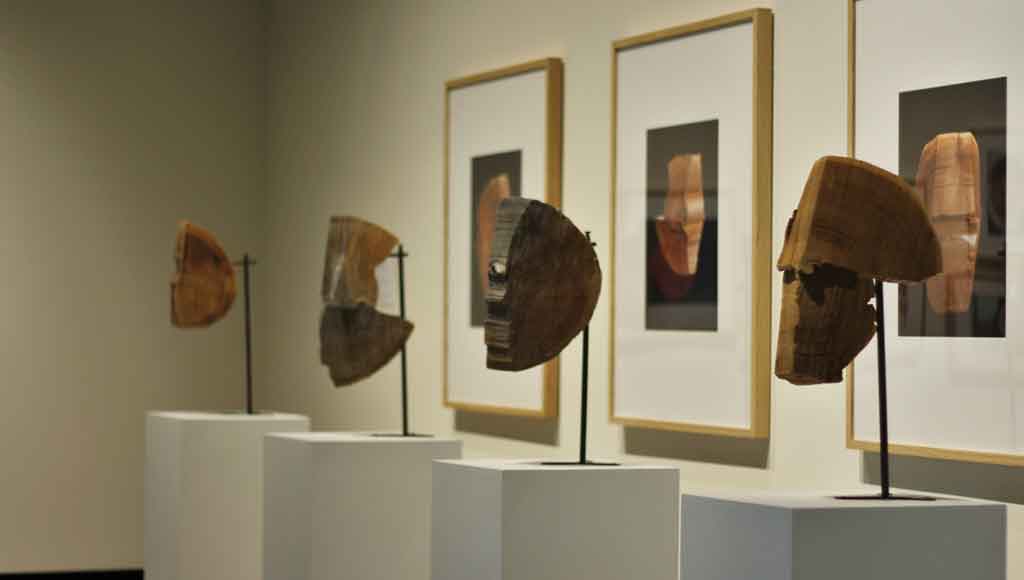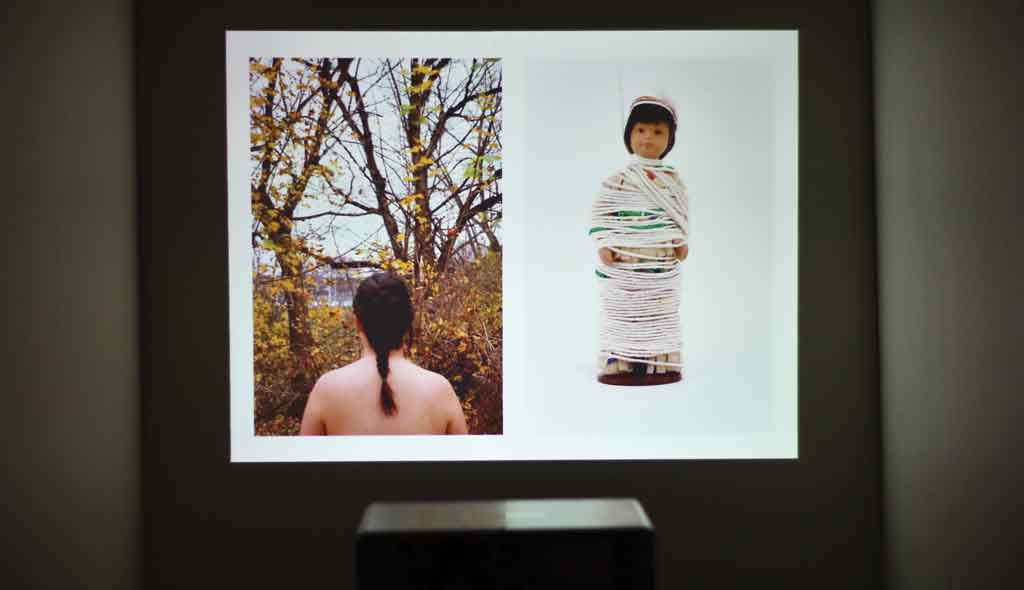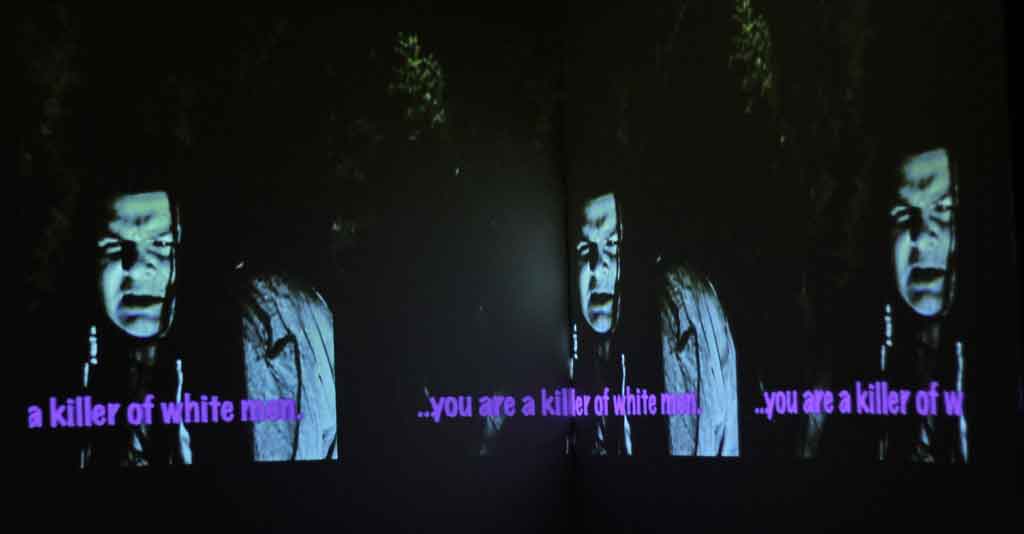By Jasmin Chahal (Contributor/Photos) – Email
Print Edition: February 4, 2015

Late last week, the Reach art gallery launched a stunning new display titled Decolonize Me, a collaborative effort by six aboriginal artists that explores the implications of colonialism within Canada and the practises of political and artistic decolonization. Currently situated next to two other indigenous exhibits — 100 Years of Loss: the Residential School System in Canada and Ancestry and Artistry: Maya Textiles from Guatemala — the exhibit is a powerful audio-visual experience.
Decolonize Me displays the artwork of Sonny Assu, an interdisciplinary artist of the We Wai Kai First Nation; Jordan Bennett, a Mi’kmaq multidisciplinary artist; Cheryl L’Hirondelle, a Cree interdisciplinary artist and curator; Nigit’stil Norbert, a Gwich’in photo-based artist; Barry Pottle, an Inuit artist; Bear Witness, a Cayuga media artist; and Heather Igloliorte, an Inuit curator.
According to the curator of the collection, the works displayed intend to “challenge, interrogate and reveal Canada’s long history of colonization in daring and innovative ways.” The title of the display itself is a deliberate play on Morgan Spurlock’s film Super Size Me (2004), which challenges the capitalist culture that gives rise to unhealthy fast food consumption. The aim of the exhibit, however, is not simply a satirical jab at colonialism within Canada. It is a clear-cut artistic statement that decolonization of indigenous lands must begin through our social and artistic practises.
Utilizing indigenous artist Linda Tuhwai Smith’s philosophy that “decolonizing strategies” can still be applied to indigenous artwork displayed in Western institutions, the collection challenges the norms of mainstream art galleries. Believing that art should be a multi-sensory experience, the artists combine visual art with a powerful video display with the intention of re-contextualizing “imagery and narratives of Aboriginal people.”
The audio-visual and interactive elements of the exhibit are perhaps its most powerful components. Bear Witness, a member of the aboriginal hip-hop group A Tribe Called Red crafted the exhibit’s video display, titled “Assimilate This!” The video, which highlights depictions of aboriginal people in mainstream media, intends to reclaim these images and thus reduce their power.
Just as significant in its impact is Cheryl L’Hirondelle’s work. According to the artist, her project is “an attempt to address relations between natives and non-natives by re-examining the intent, issue and details of the Canadian government’s ‘Certificate of Indian Status.’ Following the Cree principles of ‘welcoming and living alongside newcomers,’ the display allows all viewers to create their own ‘treaty cards.’” The display suggests that since land treaties were signed by both aboriginal chiefs on behalf of their people and representatives of the British monarch on behalf of her people, both parties should be required to carry treaty cards.
Given that this year marks the 25th anniversary of Vancouver’s Women’s Memorial March for murdered Aboriginal women, the Decolonize Me display could not have arrived in Abbotsford at a more significant time. The display is one that confronts difficult truths in Canadian history, and challenges our perceptions of it means to identify as Canadians and settlers upon indigenous lands.

